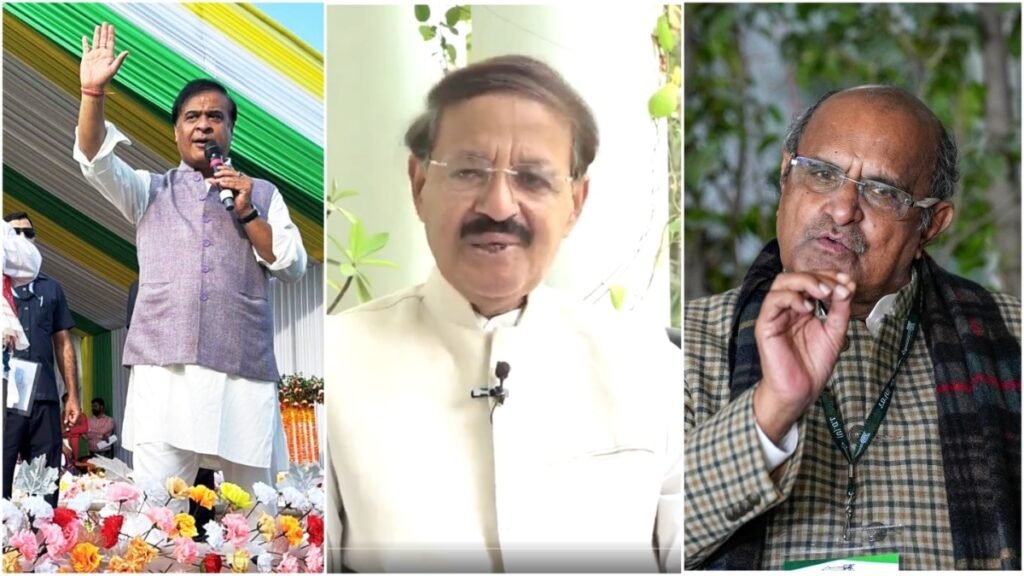Assam government’s decision to implement a state-wide ban on beef in public spaces has triggered a wave of political reactions, deepening existing social and political divides. Chief Minister Himanta Biswa Sarma’s directive prohibits serving beef in hotels, restaurants, public events, and other public places. This decision has drawn criticism from opposition parties and even BJP allies, with many leaders warning of potential social tensions.
Political Reactions
JD(U) Criticism
JD(U) leader KC Tyagi, representing one of BJP’s allies at national level, voiced strong opposition to move. He emphasized importance of respecting individual freedoms granted by Constitution.
“Constitution of India grants everyone freedom to choose their food. We do not support ban on beef in public spaces. This decision will only increase social tension, which is already quite high,” said Tyagi.
Tyagi’s remarks highlight growing discomfort within BJP’s alliances, as decision threatens to strain relationships with regional allies.
Congress Critique
Congress leaders have also condemned beef ban, accusing BJP-led Assam government of using decision to divert attention from its governance issues.
- Gaurav Gogoi, a prominent Assam Congress leader, stated:
“After BJP’s defeat in Jharkhand, CM Sarma is trying to shift focus from his failures. Just like in Jharkhand, people of Assam will hold BJP accountable in upcoming elections for its corruption, misgovernance, and illegal activities.”
- Rashid Alvi, another senior Congress leader, questioned selective implementation of such bans:
“There should be a nationwide ban on cow slaughter. But why has this issue suddenly become important for Assam Chief Minister? Will BJP impose a similar ban in Goa, Northeast, and other states where it holds power?”
Alvi’s remarks reflect widespread skepticism about timing of directive, which has sparked debates across political lines.
AIUDF’s Opposition
Dr. Hafiz Rafiqul Islam, legislator and general secretary of All India United Democratic Front (AIUDF), voiced strong objections to ban.
“government should not decide what people eat or wear. If BJP cannot ban beef in Goa or other Northeast states, why impose it in Assam? This decision holds little significance for us.”
Islam’s critique underscores concerns that ban disproportionately targets certain communities, further polarizing state’s social fabric.
BJP’s Defense
Despite mounting criticism, BJP leaders have defended move, framing it as a measure of cultural respect.
- Dilip Saikia, BJP MP from Darrang-Udalguri, described decision as historic:
“This decision should not be viewed through a communal lens but as a sign of respect towards a religious faith. There is no ban on consumption of beef in private.”
- Assam’s Minister Pijush Hazarika took a more confrontational approach, challenging Congress leaders:
“They should either accept decision or move to Pakistan.”
Hazarika’s statement further fueled controversy, adding a charged political dimension to ongoing debate.
Social Implications
beef ban has sparked concerns about its social impact, particularly in a state as diverse as Assam, where communities have historically coexisted despite cultural differences.
- Cultural Concerns:
- Critics argue that ban could disrupt cultural practices of certain communities, undermining Assam’s pluralistic ethos.
- Economic Repercussions:
- cattle trade and beef industry provide livelihoods for many in Assam. ban may adversely affect these workers, particularly those from marginalized communities.
- Polarization Risks:
- Opponents warn that such measures could deepen divisions between communities, escalating social tensions in state.
Broader Context of Ban
Assam beef ban aligns with similar measures introduced in other BJP-ruled states. However, its selective enforcement and perceived targeting of specific communities have drawn criticism.
- Selective Implementation:
- Critics question why states like Goa and Northeast regions, where beef consumption is common, are exempt from similar bans.
- Symbolism vs. Policy:
- Opponents argue that ban is more symbolic than substantive, designed to appease certain voter bases rather than address pressing governance issues.
Efforts to Maintain Stability
Amid controversy, efforts are underway to prevent ban from triggering large-scale unrest.
Police Preparedness
Local law enforcement has been directed to ensure compliance with ban while avoiding confrontations with communities that oppose it.
Public Engagement
Assam government is reportedly engaging with community leaders to address concerns and ensure that ban is implemented smoothly.
Parliamentary Debate
beef ban has also become a hot topic in Parliament, with opposition members demanding discussions during Winter Session.
- Disruptions:
- Both Houses have witnessed disruptions over issue, alongside debates on Adani controversy and Sambhal violence.
- Political Ramifications:
- ongoing debates reflect broader political ramifications of ban, as opposition parties use issue to challenge BJP’s governance in Assam.
Conclusion
Assam beef ban has reignited debates about individual freedoms, cultural diversity, and political intent in policymaking. While BJP leaders defend decision as a cultural necessity, critics warn of its divisive potential and question its selective application.
As controversy unfolds, impact of ban on Assam’s political, social, and economic landscape will be closely watched, especially with elections looming on horizon.
Disclaimer
This article on Assam Beef Ban: BJP’s Ally JD(U) Leader Says Move Will Cause Tension is based on publicly available information and reliable sources. While every effort has been made to ensure accuracy, readers are encouraged to verify details independently. This content is for informational purposes only and does not constitute professional advice.


